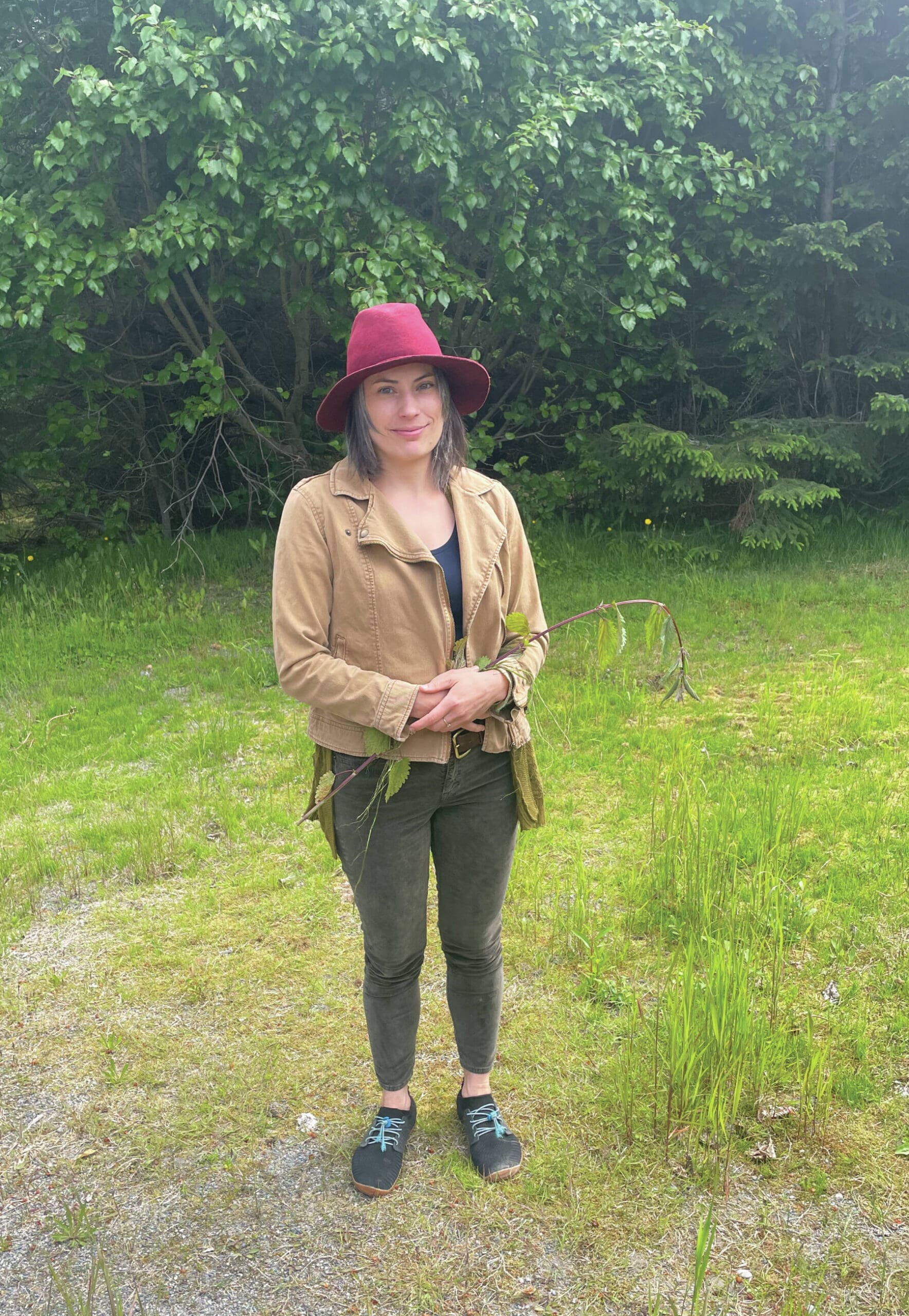Homer multimedia artist Carla Klinker will teach a nettle fiber workshop at the Pratt Museum on June 29 from 11 a.m. to 2 p.m. The course is designed for adults and teens and will take place outdoors. Pratt requests participants to come prepared for any weather.
The course announcement states that Klinker will “introduce a variety of ways of working with nettle fiber, including harvesting times and techniques, making cordage, and integrating nettle thread into practical and artistic projects.”
Klinker started teaching some courses through her home last summer, though she’s always been interested in fiber and making things from Homer’s natural environment. This year through online courses and personal research she’s been able to learn more techniques on processing the cordage and some of the more anthropological components of the history of nettles in fiber arts.
“Nettle, in particular, has a nice hand. It can become really silky, and has been used tens of thousands of years to make cord,” she said. “This is one of the things I like about sharing nettle work is the idea it that can be transformed into some useful or beautiful thing that can be used to make other things.”
One book that she’s found particularly inspirational is “Women’s Work: The First 20,000 Years – Women, Cloth, and Society in Early Times,” by Elizabeth Wayland Barber.
“In the larger archaeological record of fiber, alongside other human civilization developments, fiber doesn’t last long. By its nature, it rots away,” she said.
But, she noted that some early ceramic decoration using this cording technique is found all over the world. Nettle, specifically the regional species found here, urtica dioica, has been used for several centuries.
Another book Klinker referred to is “The Wonder of Nettles,” by Janice Schofield, who has spent substantial time studying plants in Alaska. Schofield has more information on nettles on her blog www.athomewithjaniceschofieldeaton.com.
Klinker noted that she feels a real connection with this type of women’s work or hand work that can be really slow and laborious but also rewarding and meditative. It fits in the same category as quilting, knitting, crochet or net making, she said.
Like many types of traditional crafts, she said, there are several processes and steps necessary along the way to the finished product.
In the case of this plant, “you start with harvest of the nettle, strip off the leaves, get rid of the sting, split the nettle, and then strip the skin off from the inner core, and then that dries. Then scrape the green coating off of that and let it dry,” she said.
There are many different variations of that process available.
Once a plant is harvested it can be kept and turned into fiber years later.
“I have some nettles that I harvested two years ago, but I can still get the plant wet again and then tease out the fiber,” she said. She said she typically just removes fiber with her thumbnail. The cording technique she uses is “reverse twist, double ply cordage.”
Another feature that Klinker noted from her research is the fairy tale or magical component of plants like nettles. She notes that the plant has somewhat of a protective quality, referring to a story of a girl whose three brothers who were transformed into swans and in order to save them each a vest from nettles.
“It’s similar to something like devil’s club or things that are in honey that have a little bit of danger and a process of pain in order to transform the product into something that’s useful, fine or beautiful and has a lot of power in it,” she said.
Klinker harvests nettle without gloves but will encourage workshop participants to wear gloves when harvesting on the museum trails. Other local plants she mentioned as sources for fiber are rhubarb and fireweed.
To register for Klinker’s course, visit the Pratt Museum website at https://www.prattmuseum.org/event/nettle-fiber-workshop-with-carla-klinker/. Registration fee is $30 or $25 for Pratt members.


